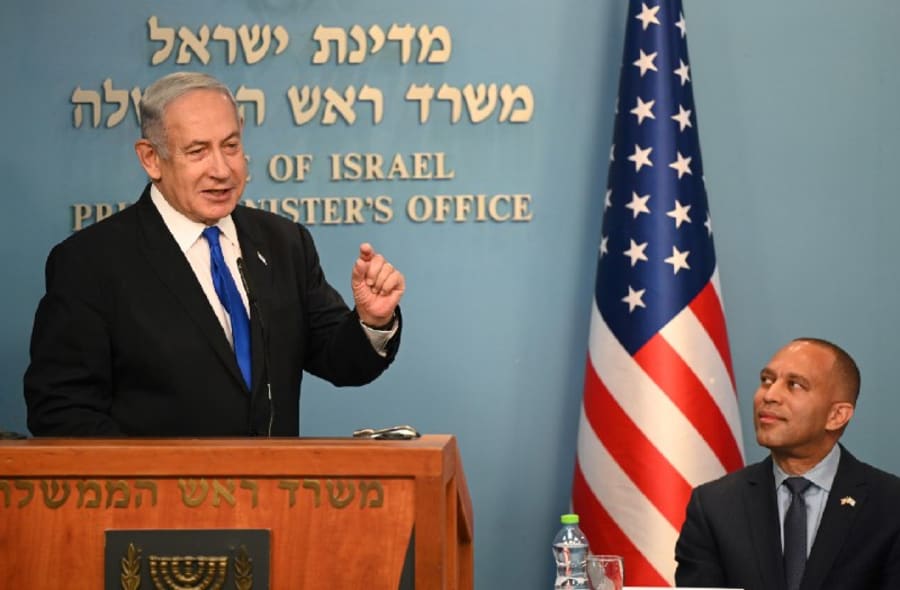Israel will become a world leader in AI, Netanyahu tells US delegation
'The future belongs to free and innovative societies like Israel and US,' says prime minister

Israeli Prime Minister Benjamin Netanyahu met with a delegation of U.S. House Democrats in Jerusalem on Monday, during which he mentioned his goal of making Israel one of the world's foremost powers in the realm of Artificial Intelligence.
"The fundamental change is the geometric pace of technological change which is bound to have fundamental effects on our society, on our economies, on our foreign relations, on our security," Netanyahu told the US delegation.
"I've committed to have [Israel] become one of the five cyber powers. AI is much, much, much bigger. The hype is not hype. It's real."
Netanyahu said the future belongs to free and innovative societies that should cooperate to ensure their citizens will receive the benefits of this new technology.
"I think in this regard, and in many other regards, Israel has no better ally than the United States and the United States has no better ally than Israel. We are the innovation society," the prime minister added.
Netanyahu has mentioned his desire to make Israel a world leader in AI in the past, most recently in an interview with Lex Fridman on July 12.
During the podcast, Fridman asked Netanyahu to describe his vision and understanding of the new technology.
"I understand one thing," Netanyahu answered. "I understand AI is developing at a geometric rate, and mostly... people don't have an intuitive grasp of geometric growth. There are several conclusions from my conversations with [Elon Musk and Sam Altman]... there is no opportunity of not entering AI with full force."
In June, Netanyahu discussed the potential of AI and the Jewish state’s role in its development with the billionaire business magnate, Elon Musk, and OpenAI CEO and co-founder Sam Altman.
“We are at the beginning of a new era for humanity, the era of artificial intelligence,” Netanyahu said in a video speech. “Things are changing at a dizzying pace, and Israel must formulate a national policy on this issue.”
In the Fridman interview, Netanyahu also compared his vision for AI with Israel's development of a cyber technology apparatus during the last years.
"I think AI is bigger than that [cyber] and related to that, because... cyber affects everything, but AI will affect it even more fundamentally, and the joining of the two could be very powerful."
Despite Israel's ongoing participation in the AI technology race as inevitable, Netanyahu also expressed apprehension about the potential long-term effects on the economy and society at large.
He warned about the possibility that AI could "chew up" jobs, saying, "If I had to bet, it will annihilate many more jobs than it will create and it'll force a structural change in our economics, in our economic models and in our politics."
The potential of AI technology could mean enormous gains in productivity and even an end to scarcity, with only very few people involved in that process, according to Israel's premier.
"You're gonna have to tax that to pass it to the others... suppose you solve that problem and you deliver money to those who aren't involved in the AI economy, what do they do?"
"People define themselves by their profession, and it's gonna be difficult if they don't have a profession... I'm not sure where it's gonna go," Netanyahu said.
In late June, Israel's Security Chief Ronen Bar confirmed that Israel uses artificial intelligence technology to identify and prevent threats of terrorism.
In May, Israel and Abraham Accord's partner, Morocco, signed an agreement to build an aeronautics and AI innovation center.
Despite its tiny size, the Jewish state has become an important global player in the development of cutting-edge technologies, such as cyber tech and AI.

The All Israel News Staff is a team of journalists in Israel.














